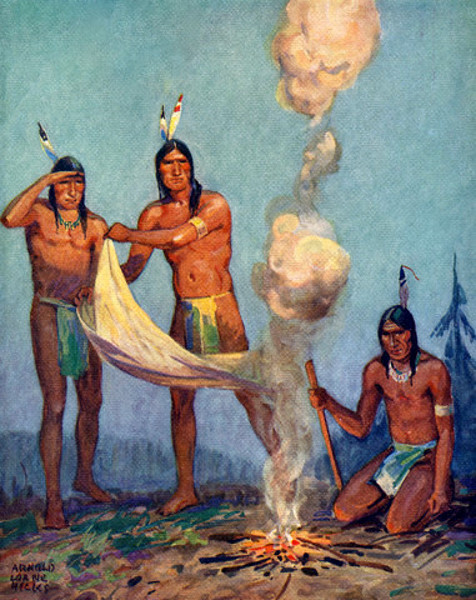Smoke Signals: The Truth About Indian Reservation Cigarettes
Smoke Signals: The Truth About Indian Reservation Cigarettes

You’ve probably seen them at the gas station, those brightly colored packs with names like “Red Cloud” or “Warrior.” They’re cheaper than your usual smokes, and sometimes, that’s all that matters. But what’s the deal with these "Indian reservation cigarettes"? Are they really different? Are they safe? And why are they so much cheaper?
This ain’t your average smoke-and-mirrors story. There’s a lot more to it than meets the eye.
Related Articles: Smoke Signals: The Truth About Indian Reservation Cigarettes
- Discover the Hidden Gems of Indian Tribes in Upper New York State
- Unveiling the Native American Heritage: Discover the Number and Treasures of Minnesota's Reservations
- Discover Montana's Native American Heritage: Uncover the Number of Indian Reservations and Their Cultural Treasures
- Unveiling the Cherokee Indian Tribe in Massachusetts: Discoveries and Insights
- Unveiling the Treasures of Indian Reservations in Connecticut: A Journey of Discovery
The Smoke Screen of Tribal Sovereignty
Let’s get one thing straight: the term “Indian reservation cigarettes” is a bit of a misnomer. It’s not like there’s some magical reservation where they grow tobacco with a special blend of magic dust. These cigarettes are just regular cigarettes, but they’re produced and sold on tribal lands.
The key here is tribal sovereignty. The United States government recognizes the right of Native American tribes to govern themselves, including their own economic activities. This sovereignty allows tribes to establish their own laws and regulations, which can include the production and sale of cigarettes.
Taxation Without Representation
Here’s where things get interesting. State and federal governments levy hefty taxes on cigarettes. These taxes are designed to discourage smoking and generate revenue. But on tribal lands, the rules are different. Tribes can decide how much, if any, tax they want to charge on cigarettes.
This difference in tax structure is the primary reason why reservation cigarettes are cheaper. Tribes often choose to tax cigarettes at a lower rate than state governments, making them a more affordable option for smokers.
The Cost of Cheap Smoke
Now, you might be thinking, "Sounds great! Cheap smokes, what’s the catch?" Well, there’s a catch.

The lower prices of reservation cigarettes can lead to increased smoking rates, particularly among young people and low-income individuals. This can have significant consequences for public health, contributing to higher rates of smoking-related illnesses.
A Complex Issue with No Easy Answers
The issue of Indian reservation cigarettes is a complex one. There are valid arguments on both sides.
Proponents of reservation cigarettes argue:
- Economic benefits: Cigarette sales generate significant revenue for tribes, which can be used to fund essential services and programs.
- Sovereign rights: Tribes have the right to govern their own affairs, including their own economic activities.
- Consumer choice: Smokers should have the right to choose the products they want to buy, including cheaper cigarettes.

Opponents of reservation cigarettes argue:

- Public health concerns: Lower prices can lead to increased smoking, which has detrimental health consequences.
- Unfair competition: Reservation cigarettes can undercut the prices of cigarettes sold by non-tribal businesses, putting them at a disadvantage.
- Exploitation: Some critics argue that tribes are exploiting their sovereign rights to generate profit from a harmful product.
The Future of Reservation Cigarettes
The future of reservation cigarettes is uncertain. There are ongoing legal challenges and debates about the role of tribal sovereignty in the cigarette industry.
Some states have attempted to regulate the sale of reservation cigarettes, but these efforts have been met with legal challenges from tribes. The Supreme Court has ruled that states cannot directly tax cigarette sales on tribal lands, but they can regulate the distribution and sale of cigarettes within their borders.
The issue of Indian reservation cigarettes is likely to remain a contentious one for years to come.
Beyond the Smoke: A Deeper Look
The debate over reservation cigarettes is more than just about cheap smokes. It’s a reflection of the complex relationship between Native American tribes and the United States government. It’s a conversation about self-determination, economic development, and the health of both individuals and communities.
FAQ: Indian Reservation Cigarettes
Q: Are reservation cigarettes safer than regular cigarettes?
A: No, reservation cigarettes are not inherently safer than regular cigarettes. They contain the same harmful chemicals and pose the same health risks.
Q: Are reservation cigarettes legal?
A: Yes, reservation cigarettes are legal to sell and purchase on tribal lands.
Q: Why are reservation cigarettes cheaper?
A: Reservation cigarettes are cheaper because tribes can set their own tax rates, which are often lower than state and federal taxes.
Q: Are there any health risks associated with reservation cigarettes?
A: Yes, all cigarettes, including reservation cigarettes, pose serious health risks, including cancer, heart disease, and lung disease.
Q: Can I buy reservation cigarettes online?
A: It’s legal to buy cigarettes online, but it’s important to be aware of the risks. There are many scams and counterfeit products online, so it’s crucial to buy from reputable sources.
Q: What are some of the arguments against reservation cigarettes?
A: Critics argue that reservation cigarettes contribute to increased smoking rates, particularly among young people and low-income individuals, and that they create unfair competition for non-tribal businesses.
Q: What are some of the arguments in favor of reservation cigarettes?
A: Supporters argue that reservation cigarettes provide economic benefits to tribes, that they respect tribal sovereignty, and that they give consumers a choice in the marketplace.
Q: What is the future of reservation cigarettes?
A: The future of reservation cigarettes is uncertain. There are ongoing legal challenges and debates about the role of tribal sovereignty in the cigarette industry.
The issue of Indian reservation cigarettes is a multifaceted one with no easy answers. It raises questions about sovereignty, economics, health, and the complex relationship between Native American tribes and the United States government. It’s a debate that will likely continue for years to come, with each side highlighting their own concerns and perspectives. Ultimately, it’s up to each individual to make informed decisions about their own health and the choices they make.

Closure
Thus, we hope this article has provided valuable insights into Smoke Signals: The Truth About Indian Reservation Cigarettes. We hope you find this article informative and beneficial. See you in our next article!